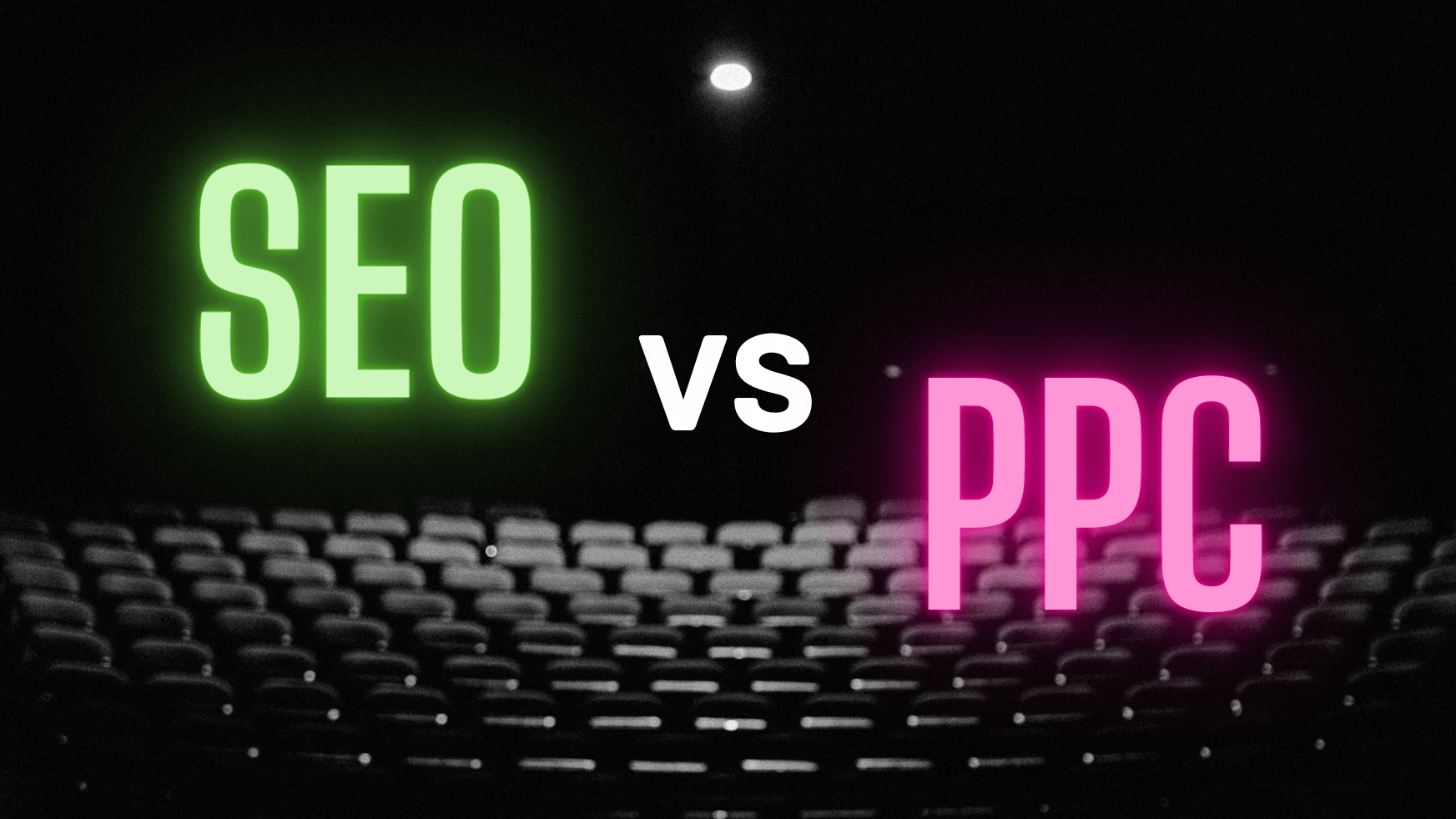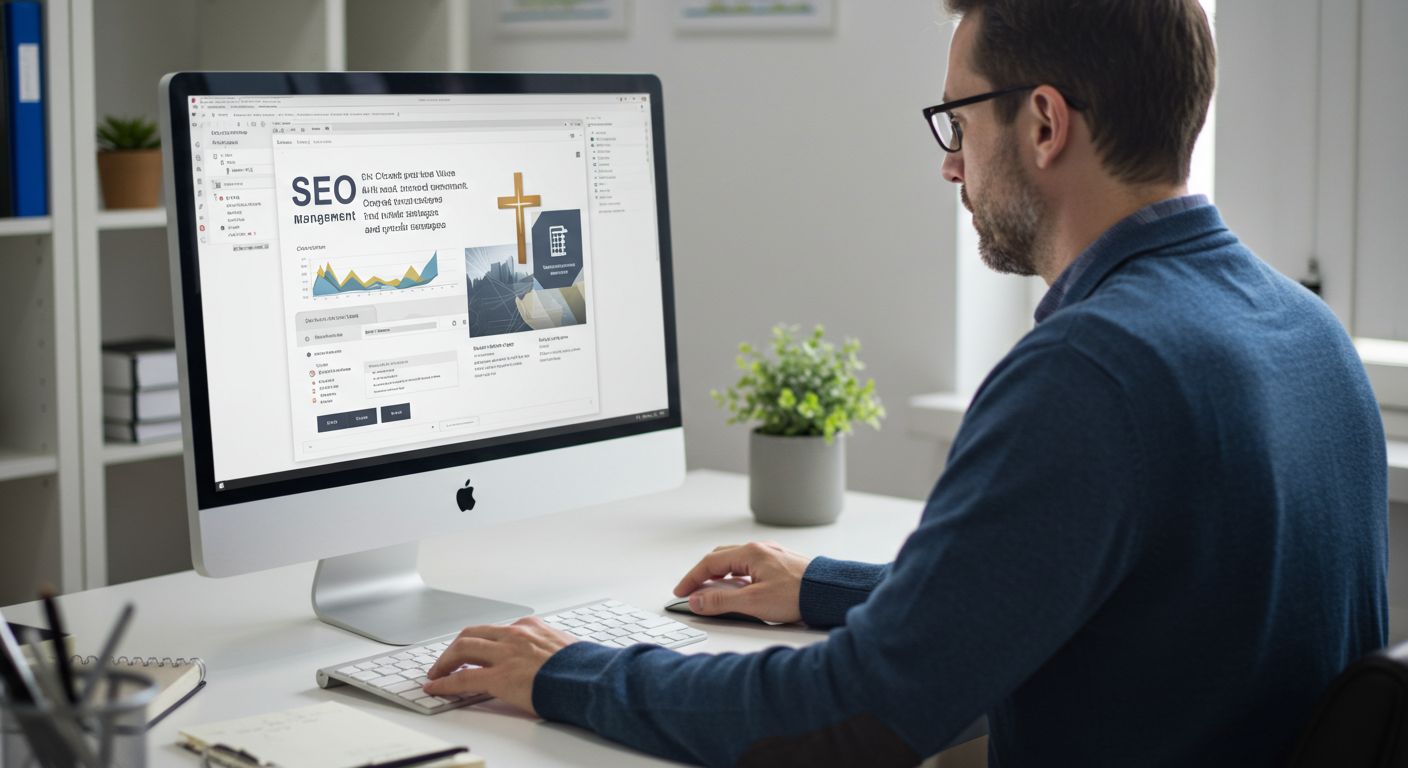SEO vs PPC - Which Is ACTUALLY Better?

Would SEO or PPC be a greater benefit to your Vermont company? Here's a breakdown of these valuable internet marketing services.
What does SEO stand for?
- The meaning of SEO is Search Engine Optimization.
- In marketing, SEO, or Search Engine Optimization, refers to the art and science of increasing the visibility of a particular website, web page or product to users of a search engine, without directly paying the search engine. The outcome of this process increases both the quality and quantity of a websites organic traffic, which often results in higher brand visibility, additional sales, more leads and greater revenue.
What does PPC stand for?
- The meaning of PPC is Pay Per Click.
- PPC, or Pay Per Click, refers to the art and science of increasing the visibility of a particular website, web page or product to users of a search engine by bidding on queries in a search engine marketing platform. The outcome of this process increases both the quality and quantity of a websites paid traffic, which often results in higher brand visibility, additional sales, more leads and greater revenue.
What is the difference between SEO and PPC?
The main difference between the two is this: SEO results in additional free organic traffic, while PPC results in additional paid traffic.
Both strategies have their upsides and downsides:
1. What is Search Engine Optimization?
SEO is a long-term process of matching what a business has to offer with what people are searching for on Google. It can take several months to see initial results. It requires a substantial amount of work upfront, and the rankings can dwindle if not maintained over time. However, the difference between being on page 1 of Google and page 2 for a given query can make or break a business. On the first page, a business in position 1 enjoys nearly three times the traffic of the business in position 3. Monitoring and improving the organic rankings of your Vermont company with Search Engine Optimization can significantly increase the stability and growth of your revenue.
How to do SEO
- Get a free Vermont SEO audit: This will inform you of any technical issues on your website, as well as identify opportunities for a higher conversion rate, better user experience and improved performance. Some sites can enjoy large increases in rankings by fixing simple mistakes and making a few key improvements.
- Get Google Business Profile Optimization: GBP for short, this is the official Google profile of your business. Many know it by its former name, Google My Business. It can show up on Google Search and Google Maps when people search in your area for your products or services. Having a competitive GBP is crucial to effectively compete with other businesses in your local area that offer the same products and services as your company.
- Generate more business reviews and have schema for reviews enabled: These 5 pointed gold stars, which appear on Google and Google Maps in the search results, are the gold standard (no pun intended) to increasing click through rates and search impression share for your organic rankings.
- Conduct better content outreach and create search optimized content: Create a interlinking network of experts within a topic or set of keywords. When Google sees multiple topically related sites linking together and sending traffic back and forth to relevant content, it signals to its ranking algorithm to favor the entire network of sites. Similarly, when it sees an individual website linking within itself and sending traffic back and forth to topically related content on its own server, it signals to its ranking algorithm to favor those individual pieces of content.
- Upgrade your website for better SEO: Modern websites must be SSL secure, mobile friendly, categorically organized, must load within a few seconds, and must guide the user down the sales funnel. If your website is not succeeding in all of these areas, it might be time to update it or upgrade to a custom website in Vermont.
Why SEO is better than PPC
By investing in SEO, a company is investing in long-term stability and growth, optimizing brand messaging and saving substantial sums of money that otherwise would have been spent on generating paid traffic. SEO can be thought of as the bread, while PPC is the butter. PPC comes secondary to SEO, as the spread to fill in the holes in searchability on Google.
Does SEO affect PPC?
Yes. Google decreases the cost of keywords substantially as the targeted page sends better signals, or has higher relevancy for a search query. When a landing page, category page or product page is properly optimized, the user experience and relevance to the search query are maximized. This means that a business that ranks higher organically for a search query in Google will have lower costs when they bid on the matching keyword in Google Ads.
2. What is Pay Per Click?
Pay Per Click Advertising, Pay Per Click Management or PPC entails creating, monitoring and optimizing paid ads on Search Engines like Google and Social Media sites like Facebook and Instagram. PPC can take very little time to set up the initial campaigns and see an increase in traffic, however it can take some time and investment to see profitability. Certain types of keywords, ads and ad targeting can be more profitable than others, so constant testing and optimization will improve results over time.
How to become a PPC Expert:
- Specialize in one ad platform: If your product or service is something people seek out, specialize in Google Ads. If it is something people buy impulsively when they see it, specialize in Facebook Ads. There are plenty of other platforms to purchase ads on and drive incremental sales as well, such as online marketplaces like Amazon, Google Express, Walmart, Jet, eBay, and more. Remember, one who chases 2 rabbits, get no rabbits.
- Know your KPIs: Depending on your product or service, you'll have targets like impressions, calls, cost per click, quality score, conversion value/cost, value/conversion and more. Becoming familiar with these terms will help you develop patterns and routines to maximize the goals of your accounts.
- Replicate the competition's winners: If your competition has been running ad accounts, spy on their campaigns with tools like SpyFu and SEMrush. Doing this allows you to easily create semi-original ad copy based on what is working for them.
- Study ad copy: Speaking a language comes naturally for most, but speaking the language of sales is a skill that must be developed. It takes practice to know the right words to instill emotion, create connection and ultimately result in a sale.
- Always chase the Unicorn: The Unicorn is the elusive ad copy, audience, placement, location etc that far exceed the average of one or more or your KPIs. While successful ad copy might earn 5% CTR (click through rate), a Unicorn can earn as high as 15%, consistently over time. Test, test, test some more. Always be testing, and you'll always be finding better results
Why PPC is better than SEO
The traffic for search ads comes instantly—as opposed to SEO which can take months. However, it still it can take several months to see a positive ROI. Pay Per Click Advertising is best done as the icing on the cake—after you've optimized your website's conversion rate, it is time to bet via PPC on the success of your products/service over the competitions' products/services.
Does PPC affect SEO?
Yes. By more rapidly testing ad text like call to actions, feature/benefit statements, titles and callouts, a certain type of brand language can be developed and reworked into the rest of the content, like meta tags, headers, descriptions and microcopy to increase KPIs like CTR and conversion rate. By taking an integrated approach, the Search Marketing Manager, PPC Account Manager and SEO Expert can streamline the process of creating organic and paid results and achieve greater synergy with their efforts.
3. What is really better SEO or PPC?
Interestingly, Google has admitted to increasing the prevalence of paid ads over time, which means that companies will be spending greater shares of marketing budgets on pay per click advertising going forward. Still, SEO improves the topical relevancy and authority of a website, directly decreasing the cost of advertising and filling in the content gaps that paid advertising leaves open. Both initiatives are important to incorporate into the larger strategy of any business that wants to remain successful and unlock the potential to maximize growth in the times ahead. In my opinion, SEO should always be done first to build a steady foundation, then PPC done as follow-up to fill in the gaps and maximize revenue.
4. How to Get PPC and SEO Optimized Together
Hire an expert to handle it for you so you can focus on what you are already good at, or get the fundamental knowledge you need and experiment on some small websites of your own.
To hire a seasoned PPC and SEO expert with Google Partner status, having experience managing over $160,000 in ad spend with over 230 keywords in positions 1-3, consider hiring myself, Galen Spring. See my
internet marketing service pricing page for both individual services and packaged services to optimize your SEO and PPC game and bring your website to the next level.
About the Author

Galen Spring specializes in SEO, web design, and PPC advertising, bringing broad experience and deep knowledge across the full spectrum of internet marketing services. His work is centered on customer acquisition and lead generation, serving both local Vermont businesses and clients across the United States.
Know Someone Who Would Like This? Share This Article:
You might also like



